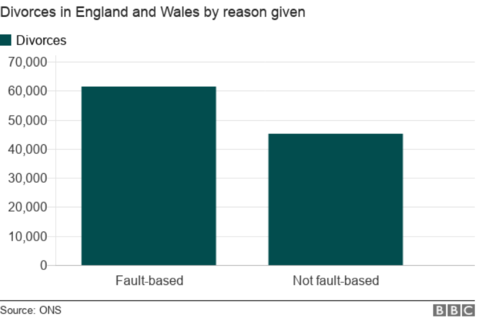The ending of a marriage is something that many people cannot and do not wish to forecast. Besides being emotionally draining for all parties, it is an incredibly taxing process to navigate through on your own. Over the last decade or so, the breakdown of marriages has become extremely common, with many people now opting for an immediate divorce from their partner.
To put this into a wider perspective, there is data from the past 50 years that shows around a third of married couples in the UK get divorced, and the common breaking point tends to be around the 30-year mark.
With the above in mind, if you feel like your marriage could be on the brink of collapse, you should understand that you are not alone and there is support available for you. Following the guidance of an experienced divorce lawyer, you can ensure that the dreaded process is as swift and seamless as possible and, more importantly, you get the outcome you desire.
From child complications to work-life balance issues, there are many different reasons why marriages break down and end in divorce. The events that occur throughout marriage will often determine whether a person can stay with their spouse or not and several factors can change a relationship in a very short period.
According to a study carried out in the United States, the three most common reasons for divorce are:
- Infidelity or ‘cheating’ (24%)
- Domestic violence (21.2%)
- Substance abuse (12.1%)
However, the above are often products of insurmountable pressure and problems that gradually build up over time. Like a divorce, the changes that occur in a relationship are both hard to predict and avoid. In most cases, separation is the best solution for both sides.
In the UK, there are three main types of divorce, which are no-fault, uncontested and contested. The ins-and-outs differ slightly, but an outcome of a divorce is generally met providing you qualify.
Typically, the petition for a divorce in the UK must meet one of the five grounds of divorce, these are Adultery, Unreasonable Behavior, Desertion or Time Spent Separated (2yr / 5yr).
While BBC data from 2018 shows that more Fault Based divorces took place, we can assume some conflict throughout the process. Yet, many couples settle for this form of divorce to speed up the process, without necessarily having a genuine fault – fabricating the proceedings.
This is the option provided if the person at fault successfully contests the grounds of which they’ve been accused, or if the couple generally doesn’t want to place blame on each other.
Although, in April 2022, No-Fault Divorce is set to change. The five faults are likely to be replaced by a new requirement, whereby a couple (or either member individually) must provide a statement of ‘irretrievable breakdown’, without having to provide evidence, and without the possibility of the spouse contesting the divorce.
This means that less time will be spent on holding one another at fault and allows more time to arrange financial proceedings and parental agreements..
An uncontested divorce is when the respondent receiving the fault-based divorce petition chooses to agree to the accusation of fault, ultimately taking the blame for the collapse of the marriage. Proceeding with an uncontested divorce means the process is handled a lot faster and smoother with reduced costs.
A contested divorce is when the respondent does not agree with the claims made about them and formal disagreements are carried out in court. They may claim that they don’t feel the marriage has broken down irretrievably and that they are not at fault. Whether or not the petition is contested, financial settlements are advised. It is worth noting, however, that if the divorce is contested unsuccessfully, the respondent may need to pay the court fees for both sides. In this case, an ADR (Alternative Dispute Resolution) such as divorce mediation or arbitration are safer options in many ways.
In the case of having your divorce petition contested, it may be best to use a divorce mediator as an alternative to court proceedings. A mediator is a highly trained third party who can’t take sides and must remain unbiased, unlike a divorce lawyer that represents one side. The purpose of a mediator is to help each spouse reach a mutual agreement, which is likely to involve topics like financial settlements and parental agreements. Following this, you would most likely need a lawyer to create a legally binding agreement.
Litigation is the term used to describe the court divorce proceedings and is only really recommended after trying for a mediation. In a perfect world, litigation should not need to be an option. However, on occasion, there might be one spouse who doesn’t agree with the decisions, is untruthful or refuses to make a reasonable argument. Therefore, divorce litigation is recommended at times and may be the only logical option, but only after trying with a mediator, due to the added stress that it puts on the divorcees and their finances.
Similar to divorce mediation, arbitration involves an impartial third party that is separate from the court, meaning it is a much cheaper, less stressful option than litigation. While both mediation and arbitration involve an unbiased third party, the key difference is that a mediator simply advises with solutions while holding no power. On the other hand, the arbitrator gets the final say after hearing both sides. While the decision may not reflect the best outcome for either party, it aims to make a fair, unbiased decision – while the mediator helps you make the arrangements for yourself.
This is another alternative to getting a court divorce and is a collaboration between a mediator and each spouse’s solicitors. The key difference here is that each party gets a legal representative throughout the discussions. In the UK, however, this option isn’t greatly sought after. This is because the solicitors in question must have specialist training in the collaborative law process, which is not easy to find and is more expensive than the latter ADR options.
While there is no one size fits all when it comes to divorce, it is clear that there are a few ways to make the process cheaper, less traumatic and reduce the overall stress of ending the marriage.
We hope you found this guide insightful and that you understand there are options designed to make the process as painless as possible.
Our divorce solicitors are available to simplify the entire divorce process, as well as offer impartial advice on mediation, litigation and arbitration, as well as financial and parental agreements.
On top of that, if you have found yourself needing legal representation, our team of divorce lawyers and solicitors are highly experienced in family law disputes and provide strong representation to fight your corner. For more information, contact us on 0203 196 7822 or leave us a message here.









